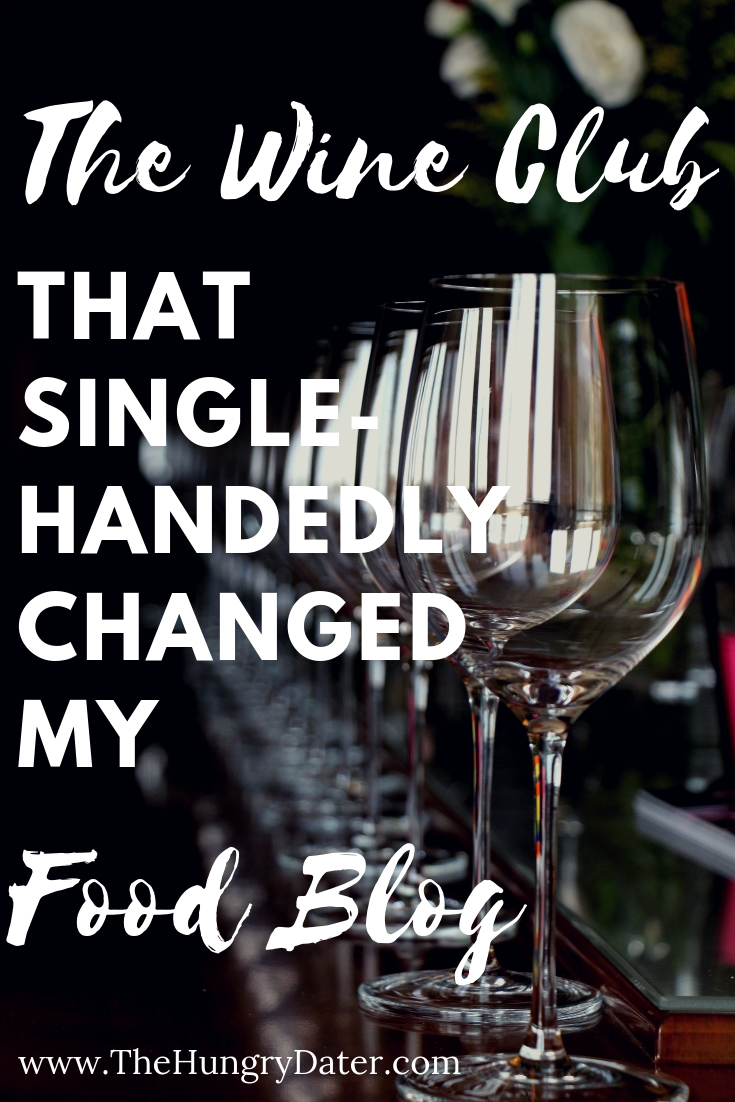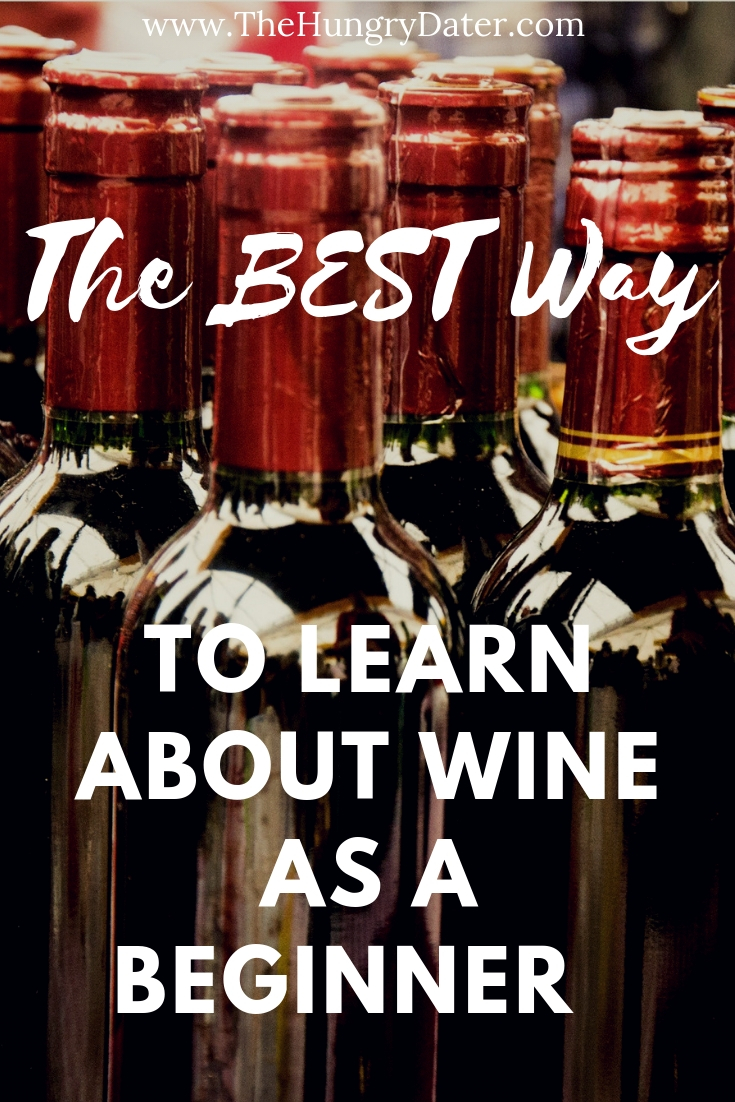
This post may contain affiliate links. When you click on the links provided, I may receive a commission, at no cost to you. See my full Disclosure Policy for more information.
So, when you’re a self-proclaimed food writer, there are certain things people expect of you. The first is, of course, that you can cook. After that, most people expect that you know about wine. So what does this mean for me as a food writer? A LOT of study. But let’s be honest, this studying can be fun. When it comes to my wine studies, I have no desire (at this point) to be a sommelier. I like what I like and I prefer to just like it because I do. But that doesn’t mean I don’t need to know more about wine in respect to food consumption and pairings. Enter the wine club.
Wine as a Culture
Wine is a strange thing. There are wine-os, wine snobs, wine enthusiasts, sommeliers…. And all of these different labels mean different things and most have different levels of wine knowledge. When I first thought about wine, I always sortof wondered, How is it that grape juice can elicit all these different flavors, fans, connotations, and even reputations? But that’s the craziest thing: wine isn’t just grape juice. There are countless people who devote their lives to the study and creation of wine.
A Necessary Education
Honestly, the first time I realized I needed a crash course was when I was asked to write an article on two wineries in central California last year. I realized I was going to be writing about wine and the article would probably be read by neophytes and sommeliers in equal measure. That meant I had to act like I knew what I was talking about. So on my way down to California (it’s a three-ish hour drive), I listened to the audio book Wine. All the Time. (Click here for a list of my favorite products and books, including a link to buy the book.) This book was not only informative, but entertaining as hell. The writer narrates the audiobook herself, so you really get a great glimpse into her personality. By the time I showed up to do my interviews, I felt like I had at least a little bit of a working knowledge of wine so I wouldn’t sound like an idiot while asking these professionals my questions.
After that, I was hooked. I enjoyed the learning process and I figured I wanted to continue learning. But honestly, I wasn’t real sure how to do that (other than the tried and true “buy the prettiest label” approach. I didn’t think that would fly if I actually wanted to continue REALLY learning.
Get $100 off a 12 bottle case!
But while reading Wine. All the time., the author talked about wine clubs a fair amount. Then, when I was interviewing the owners of Via Romano Vineyards, she mentioned wine clubs as well. I’d heard of wine clubs in the past, but honestly I thought they were sortof a scammy-thing. I was wrong.
NakedWines.com to the Rescue
Wine clubs are actually something that are great for people like me who want to learn more about wine without having to read a whole bunch at once and spend heaps of money on things you might not like. It’s also a way to get some great tasting in without paying for a full vacation to the wine country. As I continued to learn about wine clubs I found three that were good choices for what I wanted them for. But the best of them all was NakedWines.com.
Naked Wines is it’s own type of wine club that’s different from most others. Honestly, I found nothing else like it in my research.
 The members of the Naked Wines wine club call themselves “Angels.” This may seem a bit odd, but hear me out: This wine club doesn’t just sell wines to us aspiring wine snobs. It also helps the wine makers. You see, Naked Wines sells to its Angels, wines from small struggling wineries. By engaging the wines of smaller wineries and selling them to its Angels at a reduced cost, Naked is both teaching us (the Angels) about wines and helping those wineries to get their wines and message out. This, in turn, helps the wineries financially.
The members of the Naked Wines wine club call themselves “Angels.” This may seem a bit odd, but hear me out: This wine club doesn’t just sell wines to us aspiring wine snobs. It also helps the wine makers. You see, Naked Wines sells to its Angels, wines from small struggling wineries. By engaging the wines of smaller wineries and selling them to its Angels at a reduced cost, Naked is both teaching us (the Angels) about wines and helping those wineries to get their wines and message out. This, in turn, helps the wineries financially.
Finding the Perfect Club
One of the main things I was concerned about with searching for an appropriate wine club for myself was international wines. While I like the idea of supporting American wines, some things cannot be achieved by American grapes or winemakers. For instance, the Spanish are known for their Tempranillos, the Italians for their Sangiovese, and the French for their Champagne. I want to get all manner of education in as many wines and areas as I can. And in my research I found there is no better wine club than NakedWines.com with which to do it.
Thanks to NakedWines.com, I am officially becoming a semi-educated food writer. I can now tell you exactly which kind of wines I like to have with what meals. I actually choose wines based on their tastes and smells rather than on their labels (not that I don’t still do that sometimes. Lol). And thanks to Wine. All the Time., I also now know that some of the wines I once insisted I didn’t like (i.e., Riesling or Sav Blanc), are actually not due to the type of wine, it’s the way it’s grown or made. (Side note: She’ll also teach you all about her own personal tasting and rating system, which includes taking a giant swig right out of the bottle… A tactic two of my friends were horrified and delighted to see me practice this weekend when looking for a good NakedWine in my fridge to go with our Carbonara.)
So combine this wonderful wine club with a great, fun (educational but humorous) book like Wine. All the Time., and you too can start your own personal wine education!
***Make sure to click on any of the links above to get a great discount on your first delivery from NakedWines! I promise you won’t be sorry.
Leave a Reply